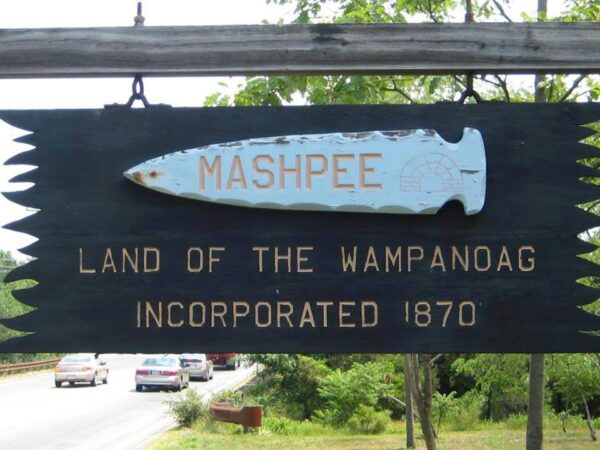
- Details
- By Native News Online Staff
WASHINGTON — What a difference a presidential administration makes. This certainly became evident on Friday when the Biden administration’s Interior Department decided to withdraw its appeal in the case of Mashpee Wampanoag Tribe v. Zinke. The appeal was set in motion last August by the Trump administration’s Interior Department.
The Interior Department filed an appeal to Judge Paul L. Friedman of the U.S. District Court for the District of Columbia’s ruling in favor of the Mashpee Wampanoag Tribe. The judge ruled that the Department of the Interior’s 2018 decision that the tribe was not under federal jurisdiction in 1934 was “arbitrary, capricious, an abuse of discretion and contrary to law.”
Friedman ordered the Interior Department to maintain the reservation status of the tribe’s 321 acres of land until the department issues a new decision on remand over whether the tribe qualifies as “under federal jurisdiction” in 1934.
The Mashpee Wampanoag Tribe, known as the Tribe of the First Light, is based in Cape Cod, Mass. and traces its history as the tribe that met with the pilgrims. The tribe received its federal recognition in 2007.
“Today is sakôhsuwôk, a triumph, not only for our Wampanoag homelands, it is also a triumph for the citizens of the Mashpee Wampanoag Tribe and our ancestors who have fought and died to ensure our Land and sovereign rights are respected. We are humbled and grateful for the support we have leaned on along the way, and grateful to the Department of the Interior for withdrawing its appeal of the decision in the federal district court that ruled in the Tribe’s favor. We look forward to being able to close the book on this painful chapter in our history,” Mashee Wampanoag Tribe Vice Chairwoman Jessie Little Doe Baird said in a statement released by the tribe on Friday.
At issue is 321 acres of land that was put into trust during the Obama administration in September 2015. The Obama decision was reversed by the Trump administration three years later in September 2018.
Last March, as the Mashpee grappled with the start of the Covid-19 pandemic, the tribe received a call from the Bureau of Indian Affairs, an order delivered by the Secretary of the U.S. Department of the Interior David Bernhardt, that the tribe’s “reservation be disestablished.”
After Friday’s Interior Department announcement that it withdrew the appeal, Rep. Bill Keating (D-MA), whose congressional district includes Cape Cod, showed his displeasure with the Trump administration’s Interior Department.
“The claim that the Tribe of the First Light, the Tribe of the First Thanksgiving was not an original Native American Tribe has always been disingenuous,” Keating said in a statement. “And the Trump Administration’s sudden attempt to remove their land from trust last March — in the midst of a pandemic — was heartless.”
More Stories Like This
Native News Weekly (August 25, 2024): D.C. BriefsUS Presidents in Their Own Words Concerning American Indians
Native News Weekly (December 14, 2025): D.C. Briefs
Wounded Knee Massacre Site Protection Bill Passes Congress
Two Murdered on Colville Indian Reservation
Help us defend tribal sovereignty.
At Native News Online, our mission is rooted in telling the stories that strengthen sovereignty and uplift Indigenous voices — not just at year’s end, but every single day.
Because of your generosity last year, we were able to keep our reporters on the ground in tribal communities, at national gatherings and in the halls of Congress — covering the issues that matter most to Indian Country: sovereignty, culture, education, health and economic opportunity.
That support sustained us through a tough year in 2025. Now, as we look to the year ahead, we need your help right now to ensure warrior journalism remains strong — reporting that defends tribal sovereignty, amplifies Native truth, and holds power accountable.
 The stakes couldn't be higher. Your support keeps Native voices heard, Native stories told and Native sovereignty defended.
The stakes couldn't be higher. Your support keeps Native voices heard, Native stories told and Native sovereignty defended.
Stand with Warrior Journalism today.
Levi Rickert (Potawatomi), Editor & Publisher

